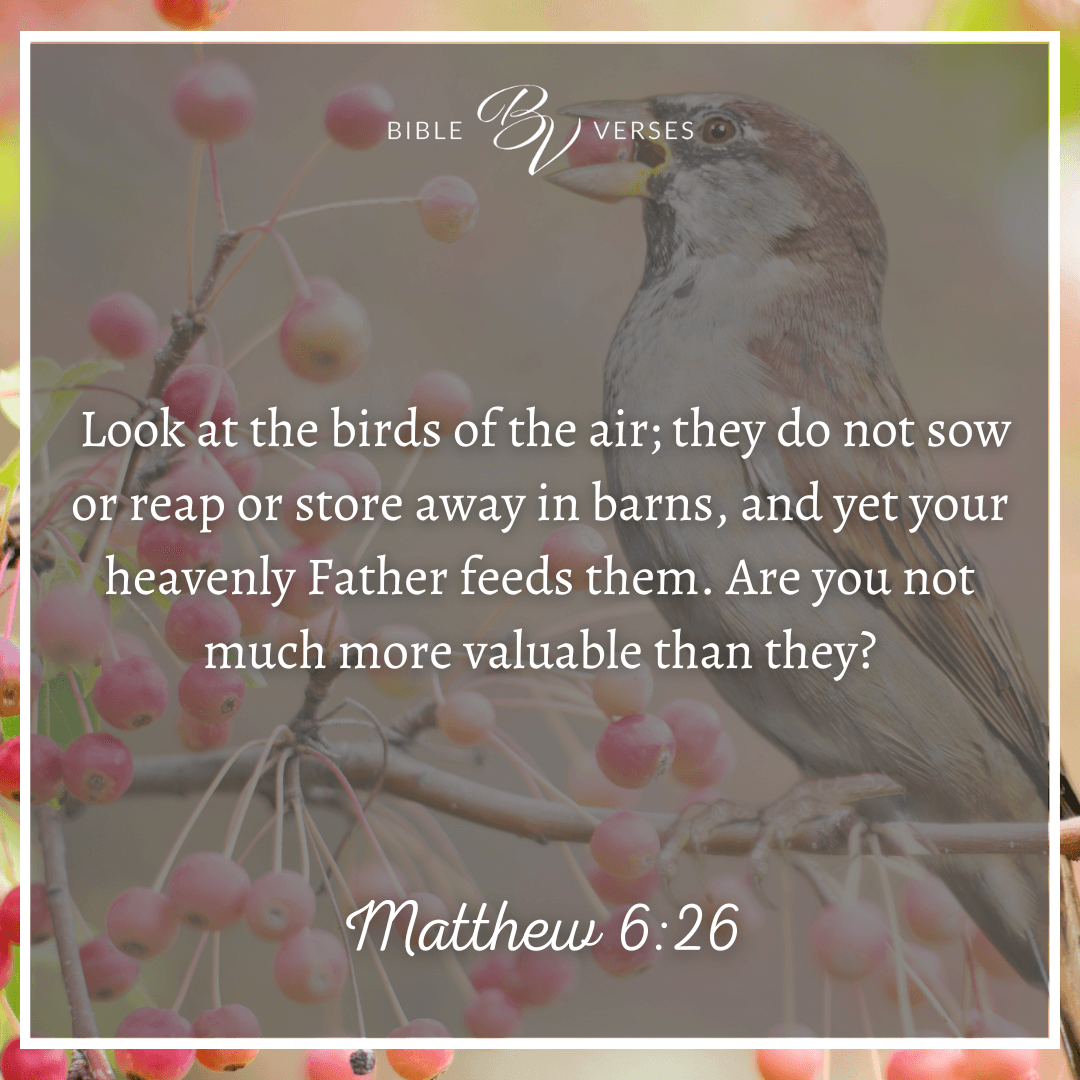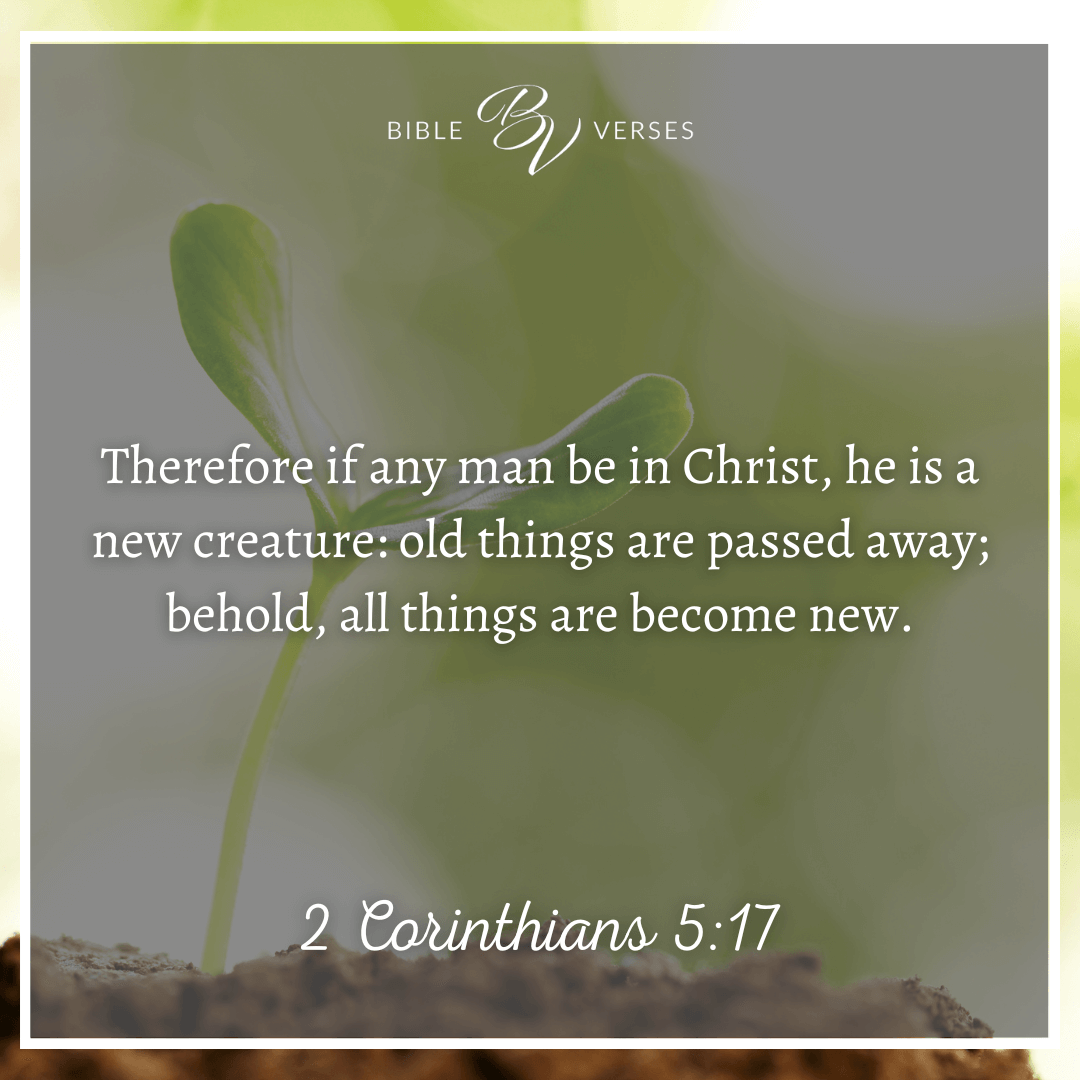15 Reaffirming Bible Verses About Self Love
In a world filled with messages about self-improvement and personal development, it’s easy to overlook the profound insights offered by scripture. From the Old Testament to the New, the Bible contains verses that speak directly to the value, worth, and significance of every individual as a beloved creation of God.
Join us as we dive into these bible verses about self love, discovering how embracing God’s love for us can transform our lives.
Bible Verses About Self Love & Worth
Self Love in the Bible
Genesis 1:27
So God created man in his own image, in the image of God created he him; male and female created he them.
So God created mankind in his own image,
in the image of God he created them;
male and female he created them.
So God created human beings in his own image.
In the image of God he created them;
male and female he created them.
So God created man in his own image,
in the image of God he created him;
male and female he created them.

This verse from the book of Genesis highlights the inherent value and dignity of every individual, as it emphasizes that humanity is created in the image of God Himself. From a perspective of self-love, Genesis 1:27 underscores the importance of recognizing and embracing one’s own intrinsic worth.
Each person is a unique reflection of God’s image, imbued with divine qualities and endowed with purpose. Embracing this truth fosters a deep sense of self-love and appreciation, as individuals come to understand their significance in the eyes of their Creator.
Psalm 139:13-14
For thou hast possessed my reins: thou hast covered me in my mother’s womb.
I will praise thee; for I am fearfully and wonderfully made: marvellous are thy works; and that my soul knoweth right well.
For you created my inmost being;
you knit me together in my mother’s womb.
I praise you because I am fearfully and wonderfully made;
your works are wonderful,
I know that full well.
You made all the delicate, inner parts of my body
and knit me together in my mother’s womb.
Thank you for making me so wonderfully complex!
Your workmanship is marvelous—how well I know it.
For you formed my inward parts;
you knitted me together in my mother’s womb.
I praise you, for I am fearfully and wonderfully made.
Wonderful are your works;
my soul knows it very well.

These verses from Psalm 139 celebrate the intricate and intentional craftsmanship of God in forming each person. From a perspective of self-love, these verses emphasize the profound truth that every person is fearfully and wonderfully made by God Himself. The imagery of being intricately knit together in the womb underscores the intimate care and attention to detail with which each person is created.
By recognizing that they are fearfully and wonderfully made by God, individuals can cultivate a deep sense of self-love and appreciation for their unique qualities, abilities, and attributes. These verses invite us to embrace and celebrate our identities as cherished creations of God.
Proverbs 8:17
I love them that love me; and those that seek me early shall find me.
I love those who love me,
and those who seek me find me.
I love all who love me.
Those who search will surely find me.
I love those who love me,
and those who seek me diligently find me.

This verse, spoken by wisdom personified in the book of Proverbs, emphasizes the reciprocal nature of the pursuit of wisdom. It suggests that those who genuinely seek wisdom will find it, and wisdom in turn embraces and values those who love and seek it.
In a broader sense, Proverbs 8:17 encourages a pursuit of wisdom and understanding. It suggests that those who actively seek to grow in wisdom will ultimately find it. This pursuit of wisdom often involves self-reflection, learning, and a desire to make wise decisions.
By seeking wisdom and understanding, individuals demonstrate love and care for themselves, recognizing the benefits of wisdom in guiding their lives and decisions. Ultimately, Proverbs 8:17 highlights the mutual relationship between the pursuit of wisdom and personal flourishing, affirming the value of self-love and the quest for knowledge and insight.
Zephaniah 3:17
The Lord thy God in the midst of thee is mighty; he will save, he will rejoice over thee with joy; he will rest in his love, he will joy over thee with singing.
The Lord your God is with you,
the Mighty Warrior who saves.
He will take great delight in you;
in his love he will no longer rebuke you,
but will rejoice over you with singing.
For the Lord your God is living among you.
He is a mighty savior.
He will take delight in you with gladness.
With his love, he will calm all your fears.
He will rejoice over you with joyful songs.
The Lord your God is in your midst,
a mighty one who will save;
he will rejoice over you with gladness;
he will quiet you by his love;
he will exult over you with loud singing.

This verse offers a message of encouragement and assurance to the people of God. It speaks of God’s presence, power, and love for His people.
In Zephaniah 3:17, God is depicted as a Mighty Warrior who saves His people from their enemies. The verse conveys the truth that God is actively involved in the lives of His children, providing protection, deliverance, and victory.
Furthermore, the verse highlights God’s deep affection. It speaks of God taking great delight in His people and rejoicing over them with singing. This imagery paints a picture of the profound love and joy that God has for those who belong to Him.
Zephaniah 3:17 encourages believers to take comfort in God’s care for them and to rejoice in His love and salvation. In this assurance, we can also try to love ourselves in the same way, knowing that our Creator does.
Matthew 6:26
Behold the fowls of the air: for they sow not, neither do they reap, nor gather into barns; yet your heavenly Father feedeth them. Are ye not much better than they?
Look at the birds of the air; they do not sow or reap or store away in barns, and yet your heavenly Father feeds them. Are you not much more valuable than they?
Look at the birds. They don’t plant or harvest or store food in barns, for your heavenly Father feeds them. And aren’t you far more valuable to him than they are?
Look at the birds of the air: they neither sow nor reap nor gather into barns, and yet your heavenly Father feeds them. Are you not of more value than they?

This verse is part of Jesus’ teaching in the Sermon on the Mount, where he encourages his followers not to worry about their material needs but to trust in God’s provision.
From a perspective of self-love, Matthew 6:26 serves as a reminder of one’s inherent value and worth in the eyes of God. By comparing humans to the birds of the air, Jesus emphasizes that if God cares for and provides for the needs of even the smallest creatures, how much more will He provide for and care for His beloved children?
Ultimately, Matthew 6:26 encourages a perspective of self-love that is rooted in an understanding of one’s identity as a cherished child of God, deserving of love, care, and provision. It invites individuals to let go of worry and anxiety about their needs, knowing that they are valued and loved by their Creator.
Matthew 22:37-39
Jesus said unto him, Thou shalt love the Lord thy God with all thy heart, and with all thy soul, and with all thy mind.
This is the first and great commandment.
And the second is like unto it, Thou shalt love thy neighbour as thyself.
Jesus replied: “‘Love the Lord your God with all your heart and with all your soul and with all your mind.’ This is the first and greatest commandment. And the second is like it: ‘Love your neighbor as yourself.’
Jesus replied, “‘You must love the Lord your God with all your heart, all your soul, and all your mind.’ This is the first and greatest commandment. A second is equally important: ‘Love your neighbor as yourself.’
And he said to him, “You shall love the Lord your God with all your heart and with all your soul and with all your mind. This is the great and first commandment. And a second is like it: You shall love your neighbor as yourself.

These verses encapsulate Jesus’ teaching on the greatest commandments: to love God wholeheartedly and to love others as oneself.
From a perspective of self-love, Matthew 22:37-39 underscores the importance of recognizing one’s own worth and value as a foundation for loving others. Jesus implies that a healthy self-love is necessary in order to fulfill the commandment to love one’s neighbor as oneself.
If we fail to love ourselves, it becomes difficult to love others in a genuine and sacrificial manner. Self-love, in this context, involves recognizing one’s own dignity and inherent worth as a creation of God, and treating others with the same kindness, compassion, and grace that one would want shown to oneself.
John 3:16
For God so loved the world, that he gave his only begotten Son, that whosoever believeth in him should not perish, but have everlasting life.
For God so loved the world that he gave his one and only Son, that whoever believes in him shall not perish but have eternal life.
For this is how God loved the world: He gave his one and only Son, so that everyone who believes in him will not perish but have eternal life.
For God so loved the world, that he gave his only Son, that whoever believes in him should not perish but have eternal life.

This verse emphasizes the depth of God’s love for humanity, expressed through the sacrificial gift of His Son, Jesus Christ.
Understanding and embracing the love that God has for us is foundational to self-love. John 3:16 invites us to recognize our own worth and value as recipients of God’s love and grace. It reminds us that we are deeply loved and cherished by our Creator, to the extent that He willingly sacrificed His Son for our salvation.
John 14:21
He that hath my commandments, and keepeth them, he it is that loveth me: and he that loveth me shall be loved of my Father, and I will love him, and will manifest myself to him.
Whoever has my commands and keeps them is the one who loves me. The one who loves me will be loved by my Father, and I too will love them and show myself to them.
Those who accept my commandments and obey them are the ones who love me. And because they love me, my Father will love them. And I will love them and reveal myself to each of them.
Whoever has my commandments and keeps them, he it is who loves me. And he who loves me will be loved by my Father, and I will love him and manifest myself to him.

In this verse from the Gospel of John, Jesus emphasizes the connection between love for Him and obedience to His commands. He states that those who love Him are those who keep His commandments. Additionally, Jesus promises that those who love Him will be loved by the Father, and that He Himself will love them and reveal Himself to them.
John 14:21 shows that obedience to Jesus’ commands is an expression of love for oneself. This is because Jesus’ commands are intended for the well-being and flourishing of His followers. By obeying His commands, individuals align themselves with God’s will and purposes, which is the ultimate act of self love.
Romans 5:8
But God commendeth his love toward us, in that, while we were yet sinners, Christ died for us.
But God demonstrates his own love for us in this: While we were still sinners, Christ died for us.
But God showed his great love for us by sending Christ to die for us while we were still sinners.
but God shows his love for us in that while we were still sinners, Christ died for us.

This verse from the book of Romans highlights the profound depth of God’s love for humanity. It emphasizes that God’s love is not based on human merit or goodness, but on His own character and initiative. Despite our sinfulness and unworthiness, God demonstrated His love for us by sending His Son, Jesus Christ, to die for our sins.
Romans 5:8 reminds individuals that they are deeply loved and valued by God, regardless of their flaws, mistakes, or shortcomings.
Furthermore, Romans 5:8 invites individuals to respond to God’s love with gratitude, humility, and faith. It encourages them to embrace the reality of God’s love for them and to allow it to transform their lives. By accepting God’s love and forgiveness, individuals can experience healing, restoration, and a deeper sense of self-worth and self-love.
1 Corinthians 3:16
Know ye not that ye are the temple of God, and that the Spirit of God dwelleth in you?
Don’t you know that you yourselves are God’s temple and that God’s Spirit dwells in your midst?
Don’t you realize that all of you together are the temple of God and that the Spirit of God lives in you?
Do you not know that you are God’s temple and that God’s Spirit dwells in you?

This verse, from the first letter of Paul to the Corinthians, addresses the Corinthians’ behavior and attitudes towards one another within the context of the church community. Paul uses the metaphor of the temple to convey the sacredness and importance of the church as the dwelling place of God’s Spirit.
This scripture also emphasizes the importance of recognizing and honoring one’s own body as a temple of the Holy Spirit. It invites individuals to cultivate a sense of reverence and respect for themselves, acknowledging the sacredness of their physical and spiritual being.
Furthermore, this verse encourages believers to live in a manner that is consistent with their identity as temples of the Holy Spirit. It prompts them to consider how they treat themselves, both physically and spiritually, and to align their thoughts, actions, and behaviors with God’s will and purposes.
2 Corinthians 5:17
Therefore if any man be in Christ, he is a new creature: old things are passed away; behold, all things are become new.
Therefore, if anyone is in Christ, the new creation has come: The old has gone, the new is here!
This means that anyone who belongs to Christ has become a new person. The old life is gone; a new life has begun!
Therefore, if anyone is in Christ, he is a new creation. The old has passed away; behold, the new has come.

Now in Paul’s second letter to the church of Corinth, he speaks to the transformative power of the spiritual rebirth and renewal that occurs when a person becomes a believer in Jesus Christ; a radical change in the believer’s life, where they are transformed from their old, sinful nature to a new creation characterized by righteousness and holiness.
From a perspective of self-love, 2 Corinthians 5:17 underscores the importance of embracing one’s identity as a new creation in Christ. It invites individuals to let go of the guilt, shame, and bondage of their past sins and to embrace the freedom and newness of life that comes from being in Christ.
Ephesians 5:29
For no man ever yet hated his own flesh; but nourisheth and cherisheth it, even as the Lord the church:
After all, no one ever hated their own body, but they feed and care for their body, just as Christ does the church—
No one hates his own body but feeds and cares for it, just as Christ cares for the church.
For no one ever hated his own flesh, but nourishes and cherishes it, just as Christ does the church,

In this verse from the letter to the Ephesians, the apostle Paul is addressing the relationship between husbands and wives, using the analogy of Christ’s love for the church. He emphasizes the intimacy and care that should exist within the marital relationship, drawing parallels between the care individuals naturally have for their own bodies and the love and care Christ has for His church.
From a broader perspective, Ephesians 5:29 can also be interpreted as a general exhortation to care for one’s own body. It acknowledges the natural tendency for individuals to care for and nourish their own physical well-being, highlighting the importance of self-care and self-preservation.
1 Peter 3:4
But let it be the hidden man of the heart, in that which is not corruptible, even the ornament of a meek and quiet spirit, which is in the sight of God of great price.
Rather, it should be that of your inner self, the unfading beauty of a gentle and quiet spirit, which is of great worth in God’s sight.
You should clothe yourselves instead with the beauty that comes from within, the unfading beauty of a gentle and quiet spirit, which is so precious to God.
but let your adorning be the hidden person of the heart with the imperishable beauty of a gentle and quiet spirit, which in God’s sight is very precious.

In Peter’s first letter, he encourages women to prioritize inner beauty over external adornment. He points out the value of cultivating a gentle and quiet spirit, which is considered precious in the sight of God.
In a nod to self-love, 1 Peter 3:4 underscores the importance of inner qualities and character over outward appearance, inviting individuals to focus on developing qualities such as gentleness, humility, and tranquility, which contribute to a sense of inner peace and contentment.
This verse challenges the cultural emphasis on physical beauty and external appearance, reminding individuals that true beauty is found in the character and disposition of the heart. By prioritizing inner beauty and character development, individuals can foster a sense of self-worth and self-respect that is not dependent on external factors. They can embrace their true identity and value as beloved children of God, recognizing that their worth is not determined by societal standards of beauty, but by their relationship with God.
1 John 4:16
And we have known and believed the love that God hath to us. God is love; and he that dwelleth in love dwelleth in God, and God in him.
And so we know and rely on the love God has for us.
God is love. Whoever lives in love lives in God, and God in them.
We know how much God loves us, and we have put our trust in his love.
God is love, and all who live in love live in God, and God lives in them.
So we have come to know and to believe the love that God has for us. God is love, and whoever abides in love abides in God, and God abides in him.

1 John 4:16 speaks to the intimate relationship between love and the presence of God, stating that those who abide in love abide in God, and vice versa.
To draw a line to self-love, this scripture underscores the importance of recognizing and embracing God’s love for oneself. It invites individuals to know and rely on the unconditional love that God has for them, recognizing that they are deeply cherished and valued by their Creator.
1 John 4:19
We love him, because he first loved us.
We love because he first loved us.
We love each other because he loved us first.
We love because he first loved us.

In this concise yet profound verse, John declares that our ability to love others stems from the love that God has first shown us. God’s love for humanity precedes and enables our capacity to love others. God’s love is the ultimate example and standard of love, and it serves as the foundation upon which our own love is built.
This truth encourages believers to respond to God’s love with gratitude and reciprocation, by loving others in the same way that God has loved them.







